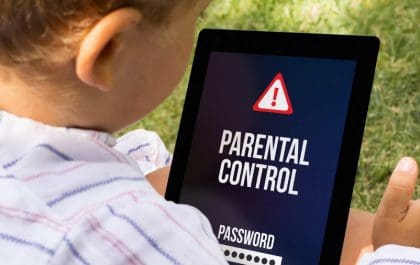By Michael K. Smith, Ph.D.
What should a good Republican parent think if his or her child wants to vote for Obama? Alternatively, how would a solid Democratic parent view his son or daughter’s support for Romney? How do children develop a political consciousness? What part should schools, parents, and the community play in educating children on political issues?
With a presidential election approaching, many parents have probably already decided on their Presidential choice. It would not be surprising either if many young children mirror their parents’ decision. However, could we, as parents, answer specific questions from our children? More than stating “I like” this candidate or “I hate” that candidate, could we explain why we are voting for a particular person? For instance, what are each candidate’s positions on major social issues? Could we explain, in some detail, the difference between the two candidates on issues of health care, Medicare, the budget deficit, educational reform, and foreign policy?
“Just as students solve a ‘problem’ in mathematics, could they not also learn to solve a ‘problem’ in politics?”
The emergence of political consciousness should parallel the development of critical thinking abilities. Teachers are specifically trained to promote problem solving and critical thinking skills in students as these students study mathematics, science, and social studies. The ability to evaluate political issues uses many of the same skills needed to do mathematical problem solving. One of the mathematical standards in the Common Core states that students should learn to “Construct viable arguments and critique the reasoning of others.”
“Mathematically proficient students understand and use stated assumptions, definitions, and previously established results in constructing arguments. They are able to analyze situations by breaking them into cases, and can recognize and use counterexamples. They justify their conclusions, communicate them to others, and respond to the arguments of others. They reason inductively about data, making plausible arguments that take into account the context from which the data arose. Mathematically proficient students are also able to compare the effectiveness of two plausible arguments, distinguish correct logic or reasoning from that which is flawed, and—if there is a flaw in an argument—explain what it is.”
Furthermore, the Common Core speaking and listening standards for Grades 11-12 state that students should be able to “Evaluate a speaker’s point of view, reasoning, and use of evidence and rhetoric, assessing the stance, premises, links among ideas, word choice, points of emphasis, and tone used.”
What better place to use these skills than in discussing and debating major political issues! What if students took the political arguments of each candidate, examined the evidence and logic presented, and tried to determine if the conclusions were logical? Just as students solve a “problem” in mathematics, could they not also learn to solve a “problem” in politics? Are the “answers” provided by politicians to political problems reasonable? Furthermore, what better place to evaluate the use of “rhetoric” and “tone” than in listening to political debates? Should the upcoming presidential debates be assigned homework, with students utilizing Common Core skills?
Admittedly, political problems are often extremely controversial. Teachers should not necessarily bear the primary burden for teaching political reasoning skills. Both the broader community and individual parents can help students develop these skills. Civic groups, libraries, and other organizations could host independent discussions of issues, so children, our future voting age citizens, could listen to debates on complicated issues. Newspapers and magazines could present, side by side, differing viewpoints of candidates. Parents, if they can temporarily restrain their own point of view, could discuss objectively with their children contrasts in candidates.
Unfortunately, most children probably think that political consciousness consists of two candidates constantly criticizing each other. These children may only see partisan political ads on television or hear mainly one-sided discussions on television or radio. The development of true political critical thinking abilities may take the “whole” community. Parents and educators agree that students need to develop critical thinking skills in reading, mathematics, and science to survive in the 21st century workplace. Just as we have mathematics standards for these skills, should we not also have “political” standards that outline strategies to think and reason about controversial issues in a democracy? Then, mathematics and politics would be alike and both would be more interesting to our children.
 Michael K. Smith, Ph.D., is owner of TESTPREP EXPERTS (www.testprepexperts.com ) which prepares students for standardized tests such as the ACT and SAT. He is also a consultant to Discovery Education Assessment. He can reached at [email protected].
Michael K. Smith, Ph.D., is owner of TESTPREP EXPERTS (www.testprepexperts.com ) which prepares students for standardized tests such as the ACT and SAT. He is also a consultant to Discovery Education Assessment. He can reached at [email protected].
Related posts
Newsletter Subscribe
Newest Posts
Set Up a Parental Control for Online Safety
Have you ever wondered how long your children spend in front of a device without your supervision? Yes, it is…
Adopt A Life, Save A Life
By Jeff Ashin, CEO, Young-Williams Animal Center. Photo by: Young-Williams Animal Center Are you or your child thinking of adding…

